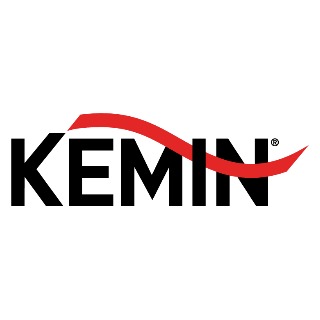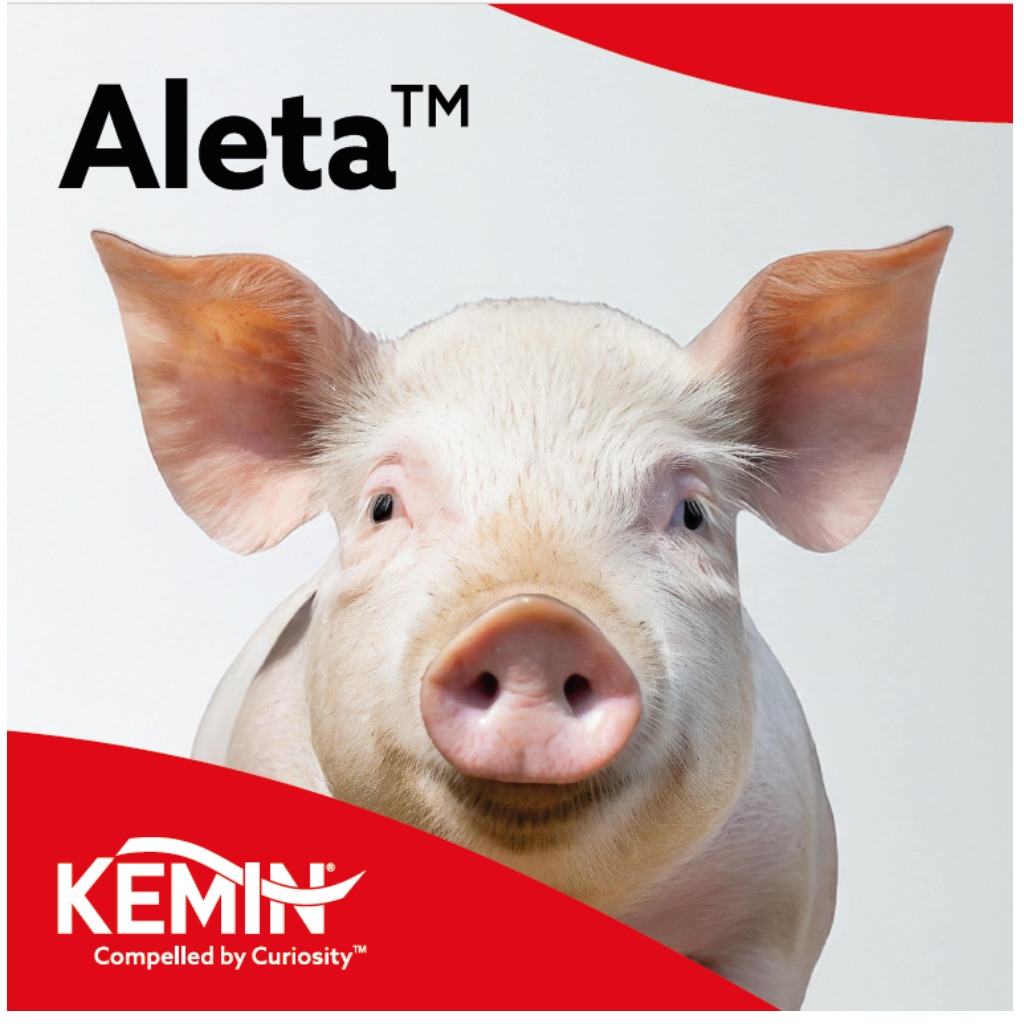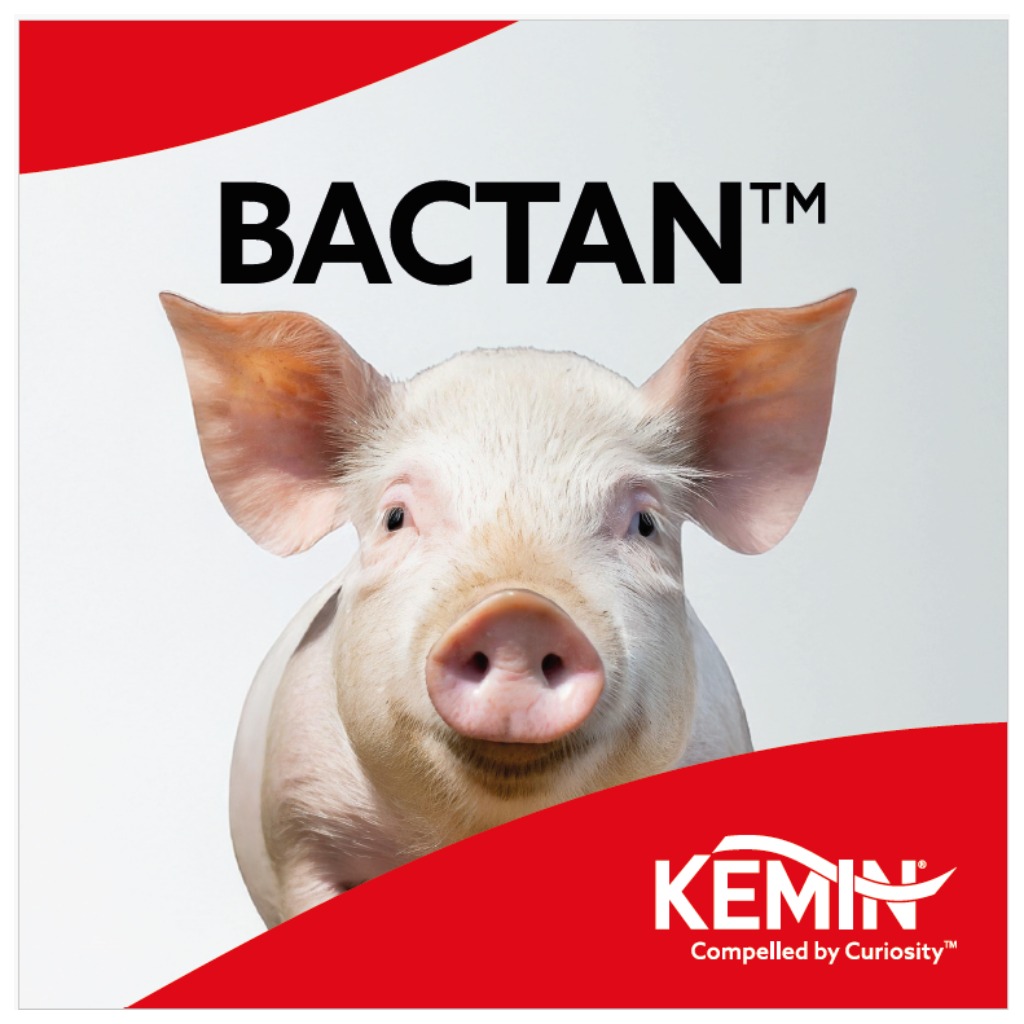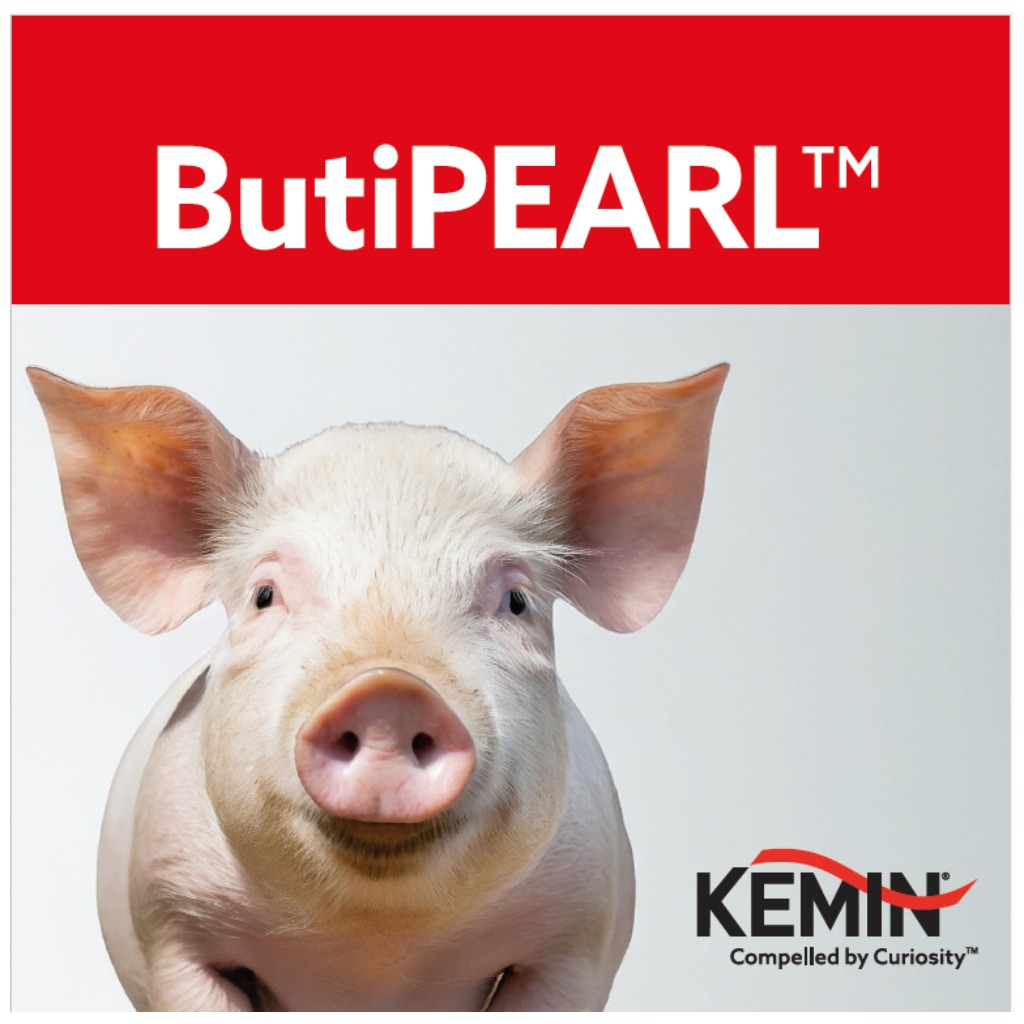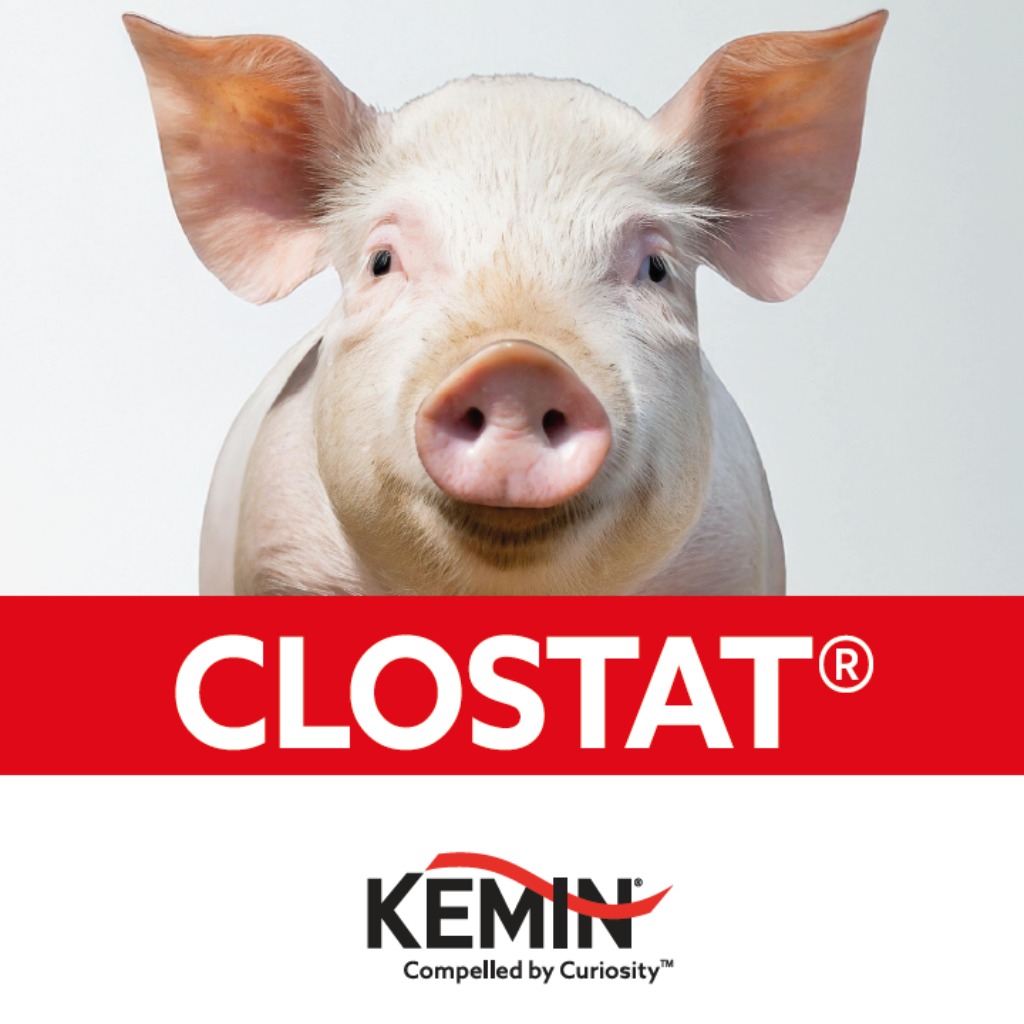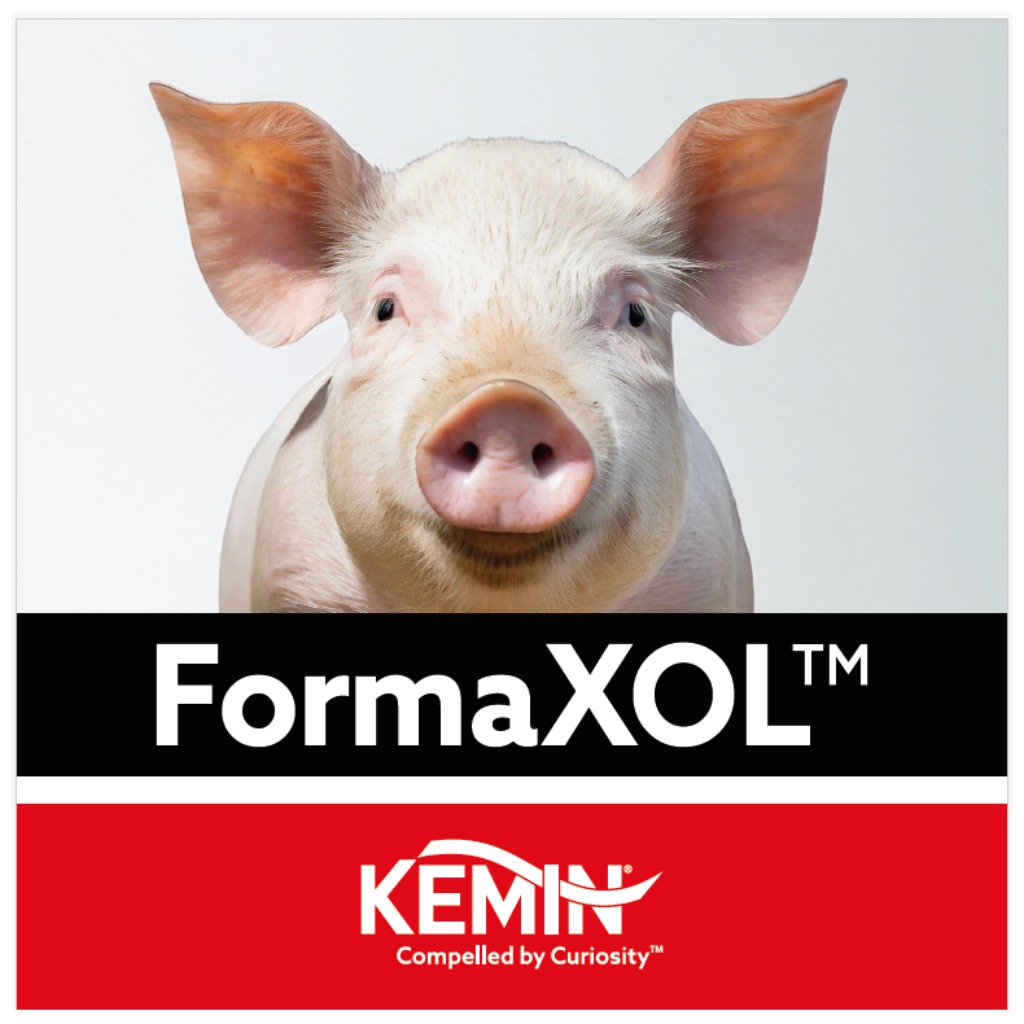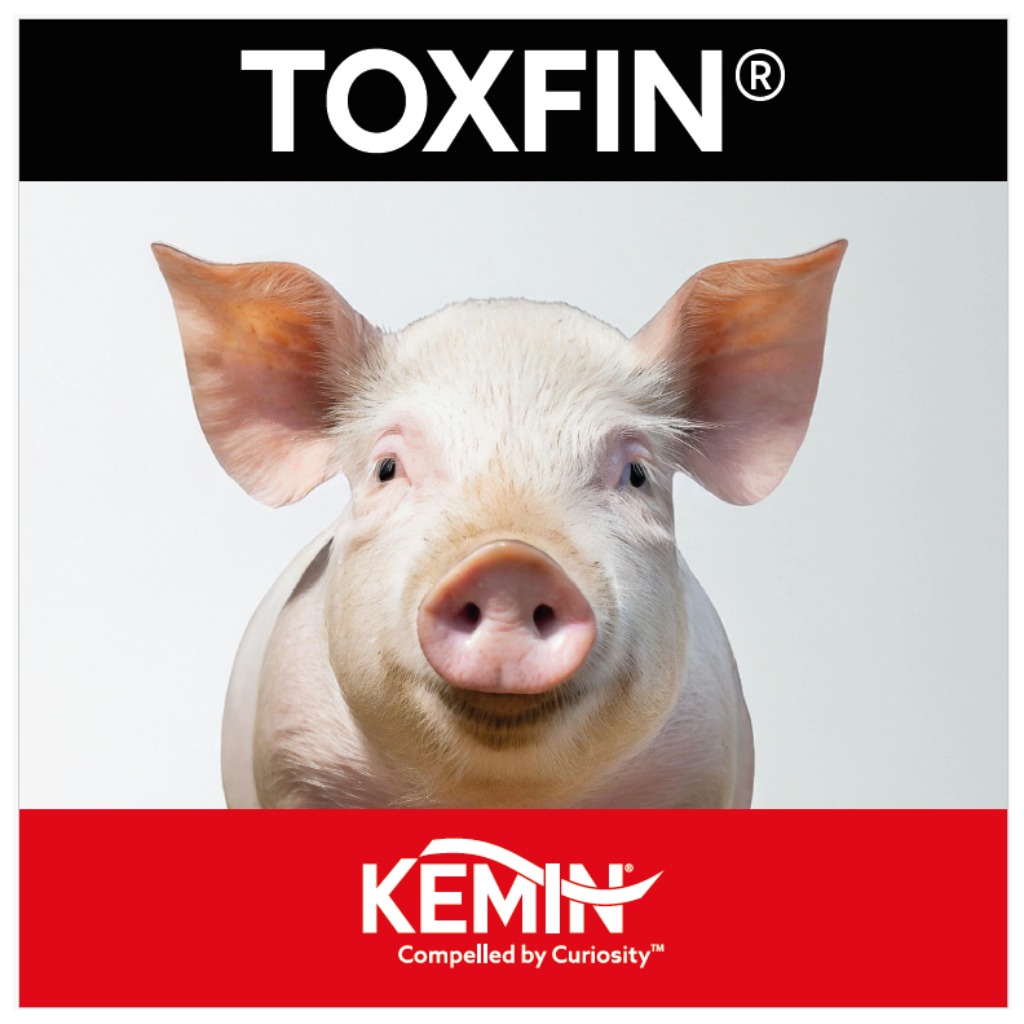Optimized protein use for stronger piglets: Leveraging the benefits of enhanced digestion
Understanding the link
The weaning period is one of the most stressful phases in pig production. Piglets
transition from highly digestible sow’s milk to solid feed, which often contains complex
plant proteins. This abrupt dietary change coincides with immature digestive enzyme
systems, particularly low endogenous protease activity, leading to incomplete protein
digestion. When proteins are not fully digested in the small intestine, they reach the
hindgut, where they undergo fermentation by pathogenic bacteria such as Escherichia
coli and Clostridium spp. This process produces harmful metabolites like ammonia and biogenicamines, which irritate the gut lining and increase the risk of post-weaning diarrhea (PWD).
Studies confirm that high dietary protein levels exacerbate PWD. Conversely, lowering
crude protein and supplementing with synthetic amino acids can reduce diarrhea
incidence, but this approach risks limiting growth if not carefully balanced.
Why Protein Digestibility Matters
Efficient protein digestion ensures amino acids are absorbed in the small intestine,
supporting growth and immune function while minimizing undigested substrates for
pathogenic bacteria. Poor digestibility not only increases diarrhea risk but also reduces
feed efficiency and elevates nitrogen excretion, impacting both animal health and
environmental sustainability.
The Role of Proteases
Proteases are enzymes that hydrolyze proteins into peptides and amino acids,
improving their availability for absorption. During weaning, endogenous protease
secretion (trypsin, chymotrypsin) drops significantly, creating a gap that exogenous
proteases can fill. Supplementing diets with proteases offers several benefits:
• Enhanced Protein Digestibility: Research shows protease supplementation
increases crude protein and amino acid digestibility, even in diets with lower
protein levels.
• Reduced Diarrhea Incidence: Trials demonstrate that adding proteases to
piglet diets significantly lowers PWD prevalence compared to unsupplemented
controls, particularly when diets contain less digestible protein sources.
• Improved Gut Health: Proteases help degrade anti-nutritional factors in
soybean meal (e.g., glycinin, β-conglycinin), reducing gut inflammation and supporting intestinal integrity. Some studies report that increased villus height and
better barrier function in protease-fed piglets.
• Better Growth Performance: By improving nutrient utilization, proteases
enhance average daily gain and feed conversion ratios, even under stress
conditions.
Practical Recommendations
• Use of Protease in Nursery Diets: Include in early post-weaning diets when
digestive capacity is most compromised.
• Combine with Lower Protein Formulation: Reduce crude protein slightly and
balance with synthetic amino acids to minimize undigested protein flow.
• Monitor Gut Health Indicators: Look for improvements in fecal consistency,
growth rates, and feed efficiency as markers of success.
Conclusion
Protein digestibility is a critical factor influencing post-weaning diarrhea. Undigested
protein fuels pathogenic bacteria, increasing gut health challenges. Protease
supplementation are a science-backed tools which bridges the enzymatic gap during
weaning, improving nutrient absorption, reducing diarrhea, and supporting sustainable pig production.
References
- Marchetti, R., Faeti, V., Gallo, M., Pindo, M., Bochicchio, D., Buttazzoni, L., & Della Casa, G. (2023). Protein Content in the Diet Influences Growth and Diarrhea in Weaning Piglets. Animals, 13(5), 795. https://doi.org/10.3390/ani13050795
- Gao, J., Ma, L., Yin, Y., Chen, Y., & Li, T. (2024). High casein concentration induces diarrhea through mTOR signal pathway inhibition in post-weaning piglets. Frontiers in microbiology, 15, 1430511. https://doi.org/10.3389/fmicb.2024.1430511
- Furlani, N. R., Da Motta, S. A. B., Ramos, B. T., Fernandes, W. V., de Farias, M. R. S., Riveros, R., Tizziani, T., & Hannas, M. I. (2025). Protease Enzyme Supplementation in Weaning Piglets Fed Reduced Crude Protein Diets: Effects on Gut Health Integrity and Performance Response. Animals, 15(14), 2109. https://doi.org/10.3390/ani15142109
- Tactacan, G. B., Babatunde, O. O., & Lahaye, L. (2024). 375 The effects of protease supplementation on weaned piglet performance and intestinal function fed greater amounts of lower digestible protein sources. Journal of Animal Science, 102(Suppl 3), 243–244. https://doi.org/10.1093/jas/skae234.280
- Moturi, J., Hosseindoust, A., Kinara, E., Mun, J., Ha, S., Park, S., Park, S., Tajudeen, H., Lokhande, A., Ingale, S., & Kim, J. (2023). Exogenous protease influences protein digestibility, growth performance, and gut microflora in weanling pigs on a limited protein diet. Archives of animal nutrition, 77(5), 342–362. https://doi.org/10.1080/1745039X.2023.2257921
- Song, M., Kim, B., Cho, J. H., Kyoung, H., Park, S., Cho, J. Y., Park, K. I., Kim, H. B., & Lee, J. J. (2022). Effects of dietary protease supplementation on growth rate, nutrient digestibility, and intestinal morphology of weaned pigs. Journal of animal science and technology, 64(3), 462–470. https://doi.org/10.5187/jast.2022.e28
Contact :
Contactez-nous en utilisant le formulaire suivant.

